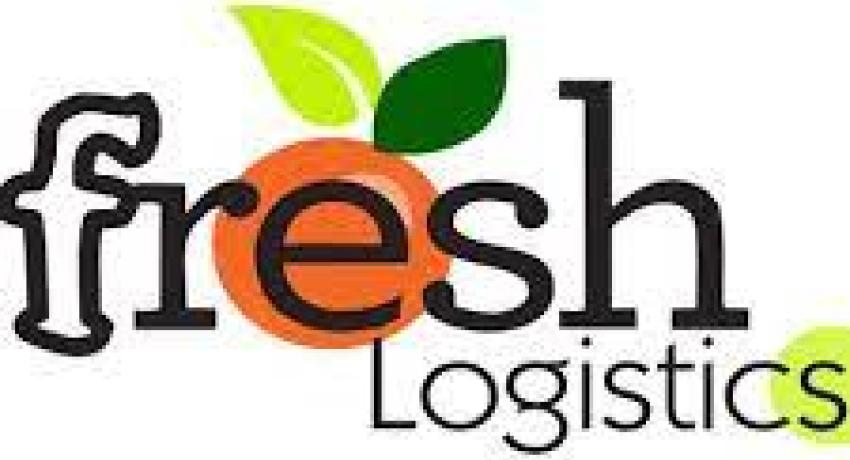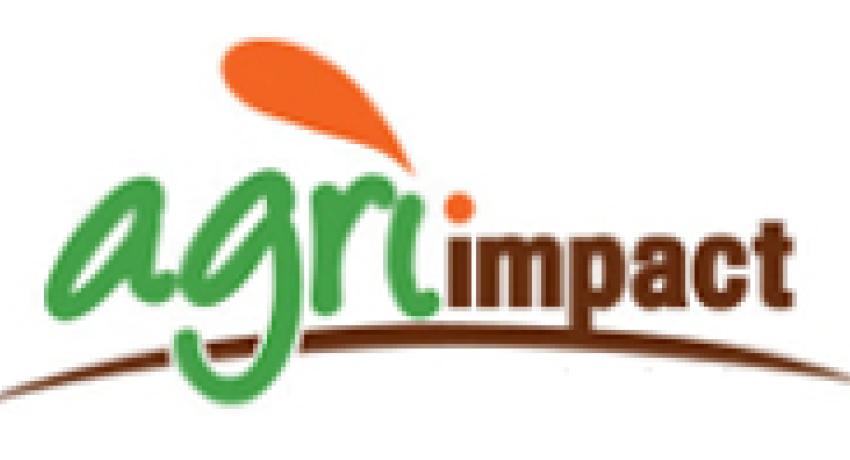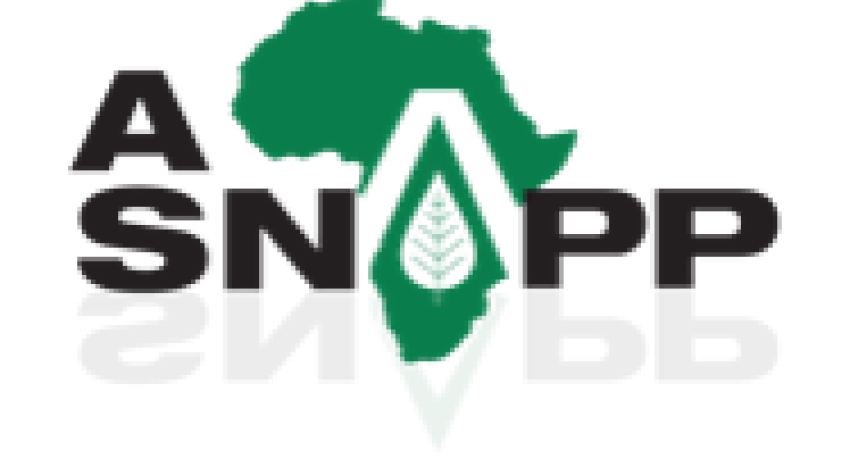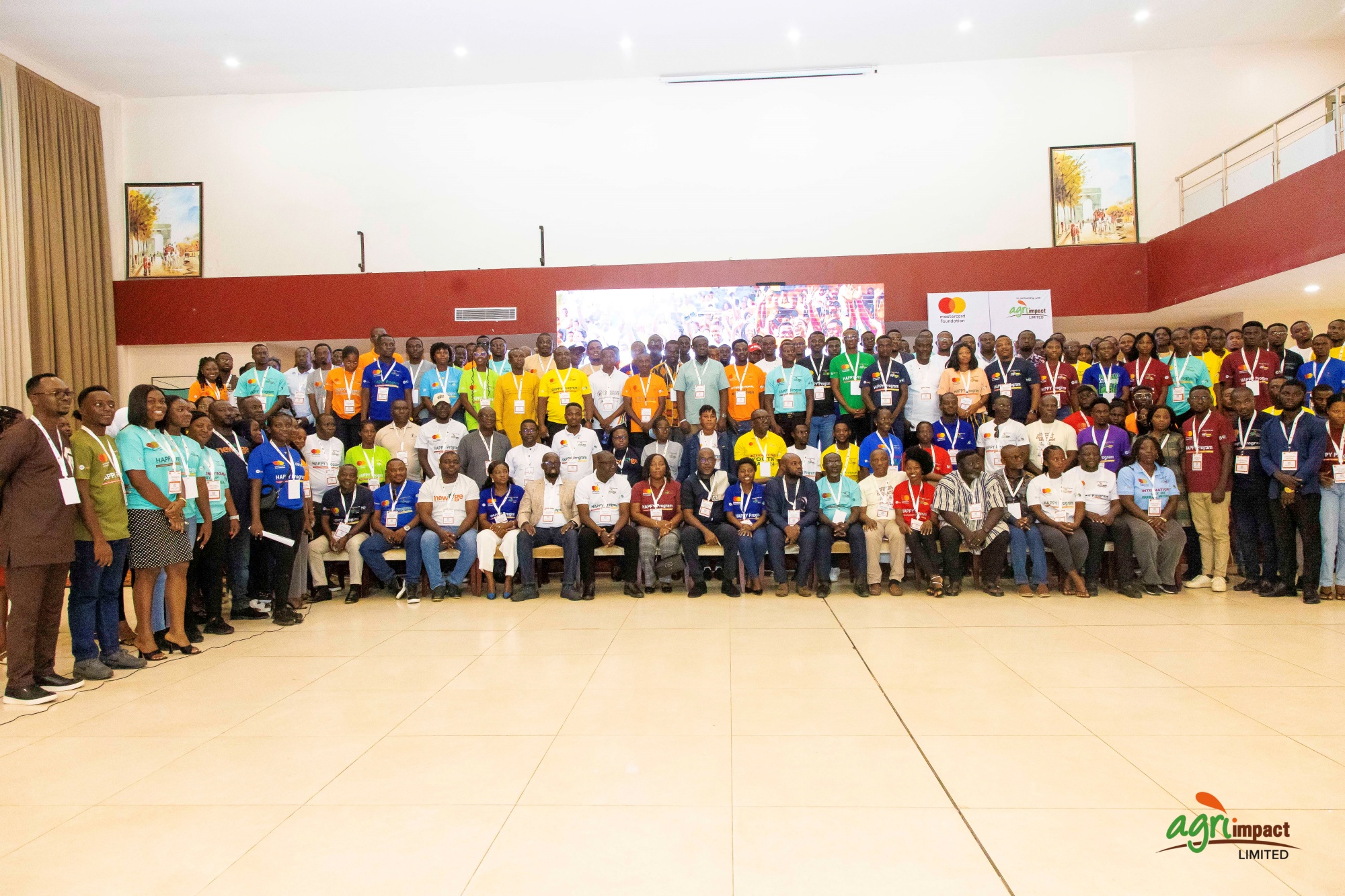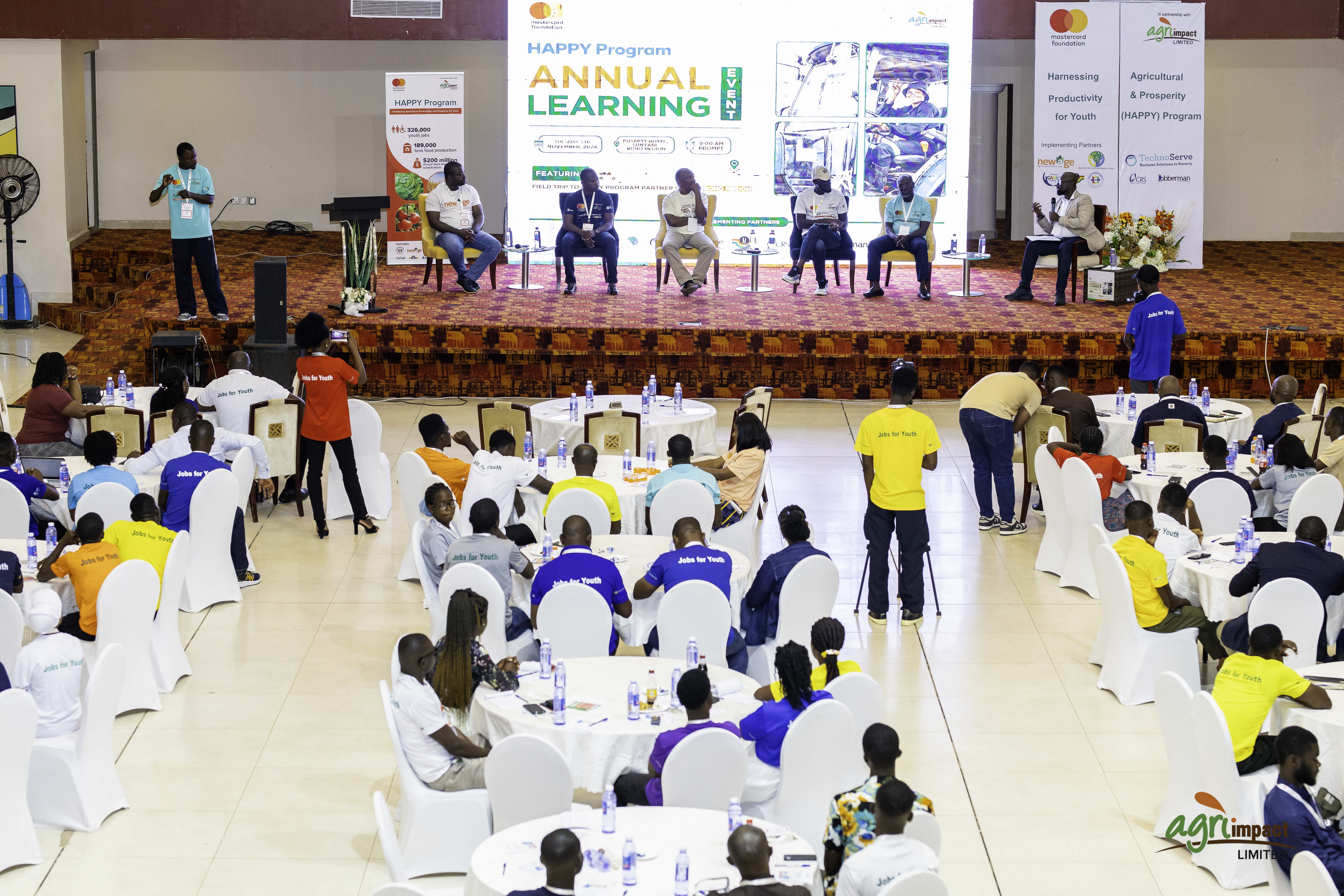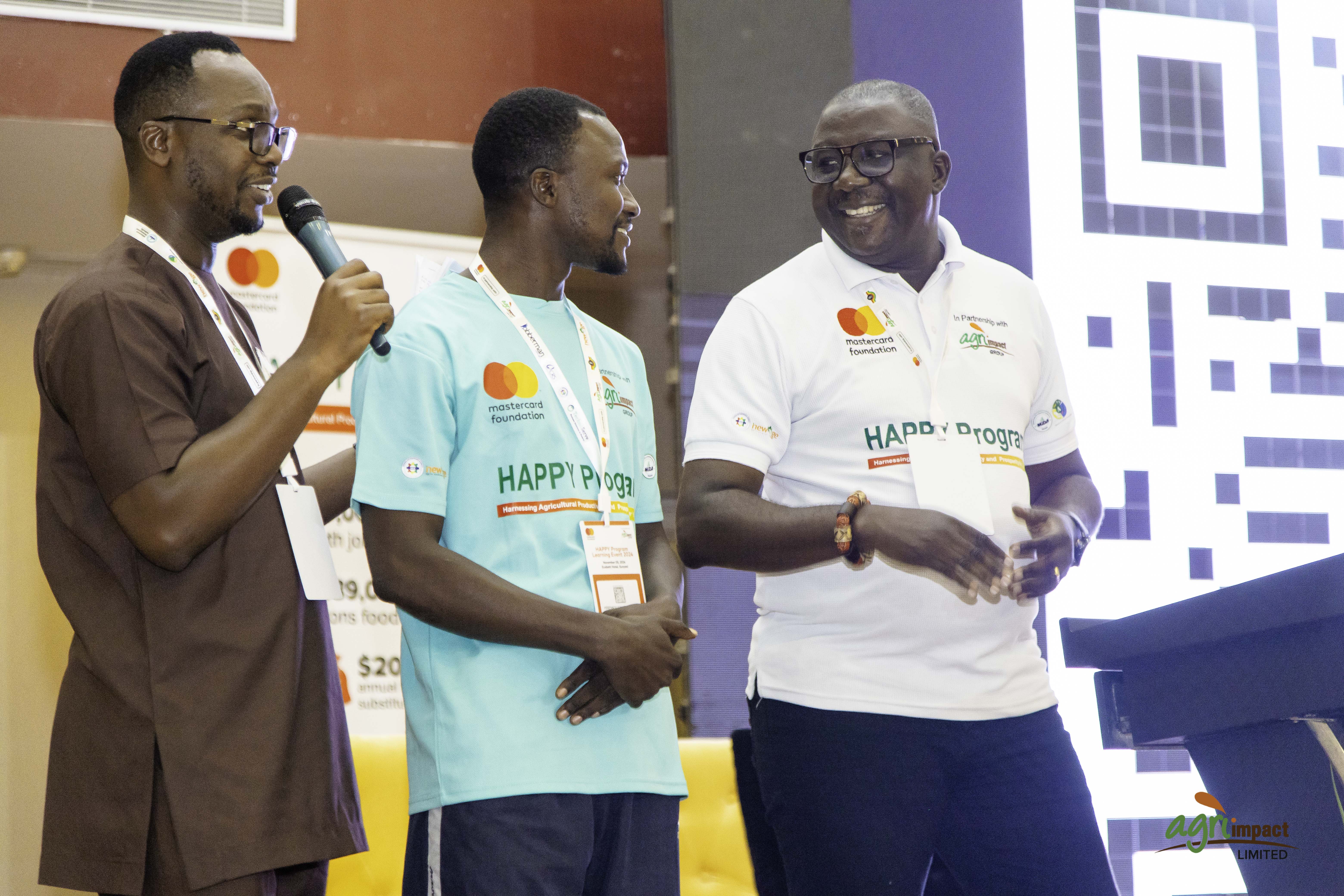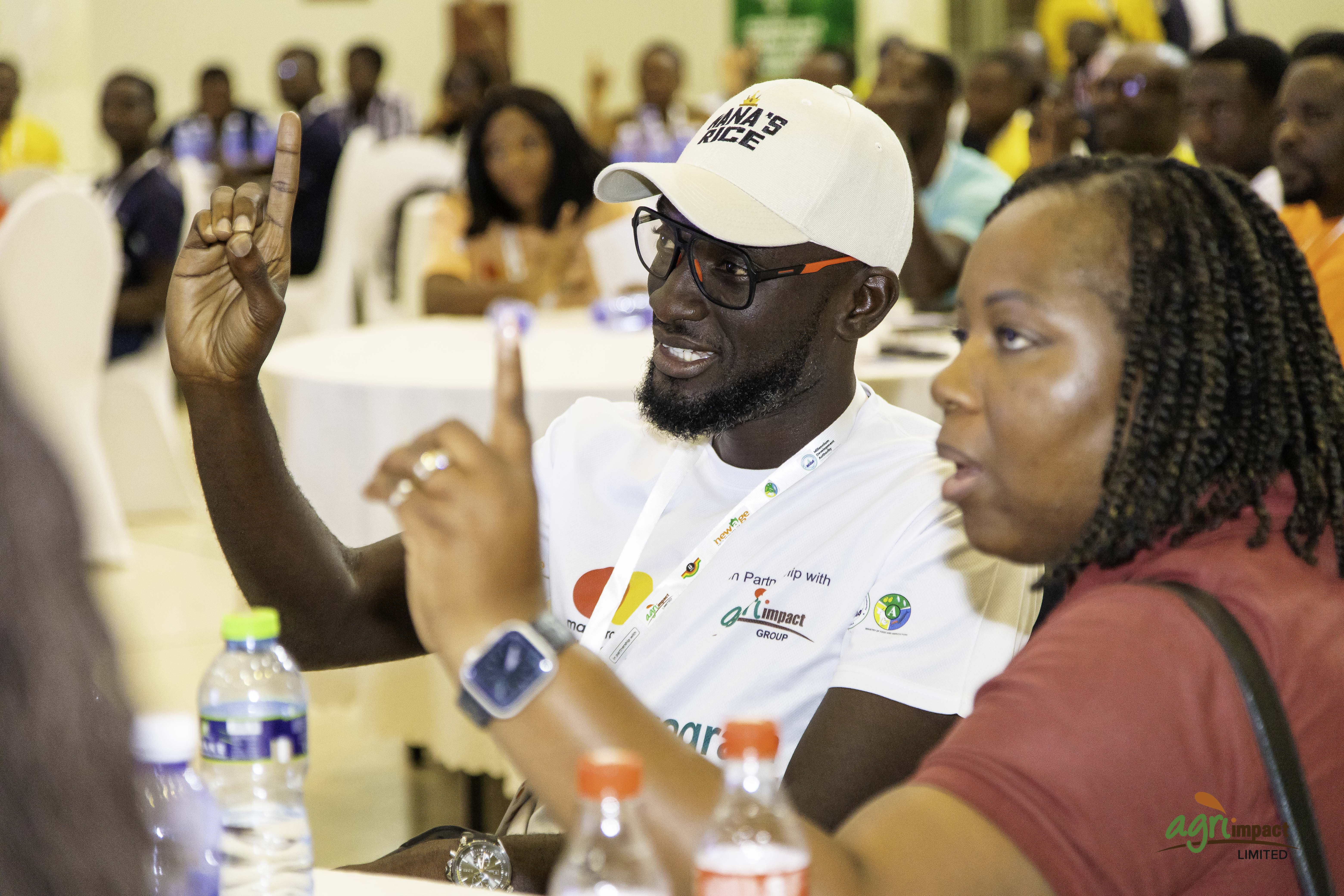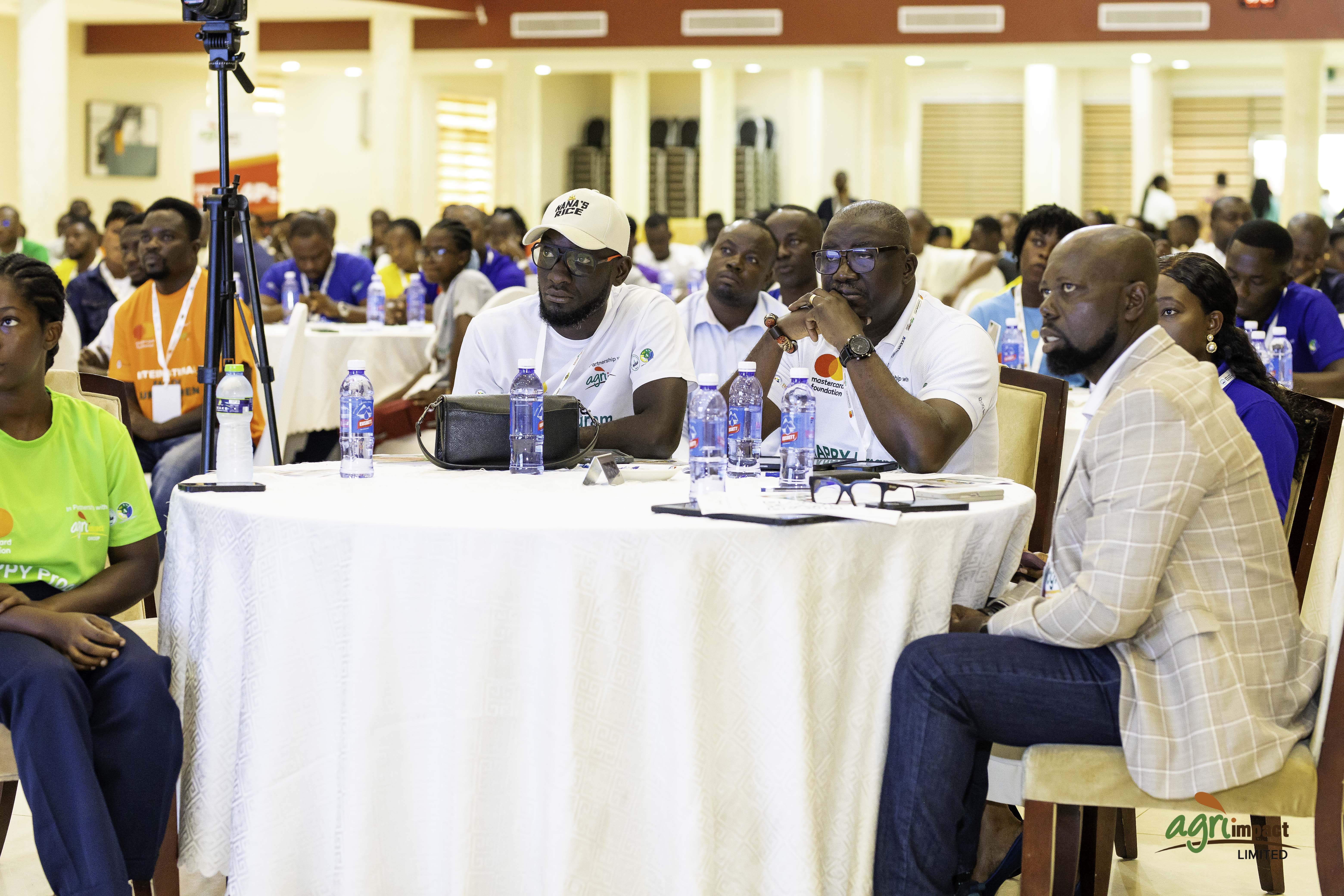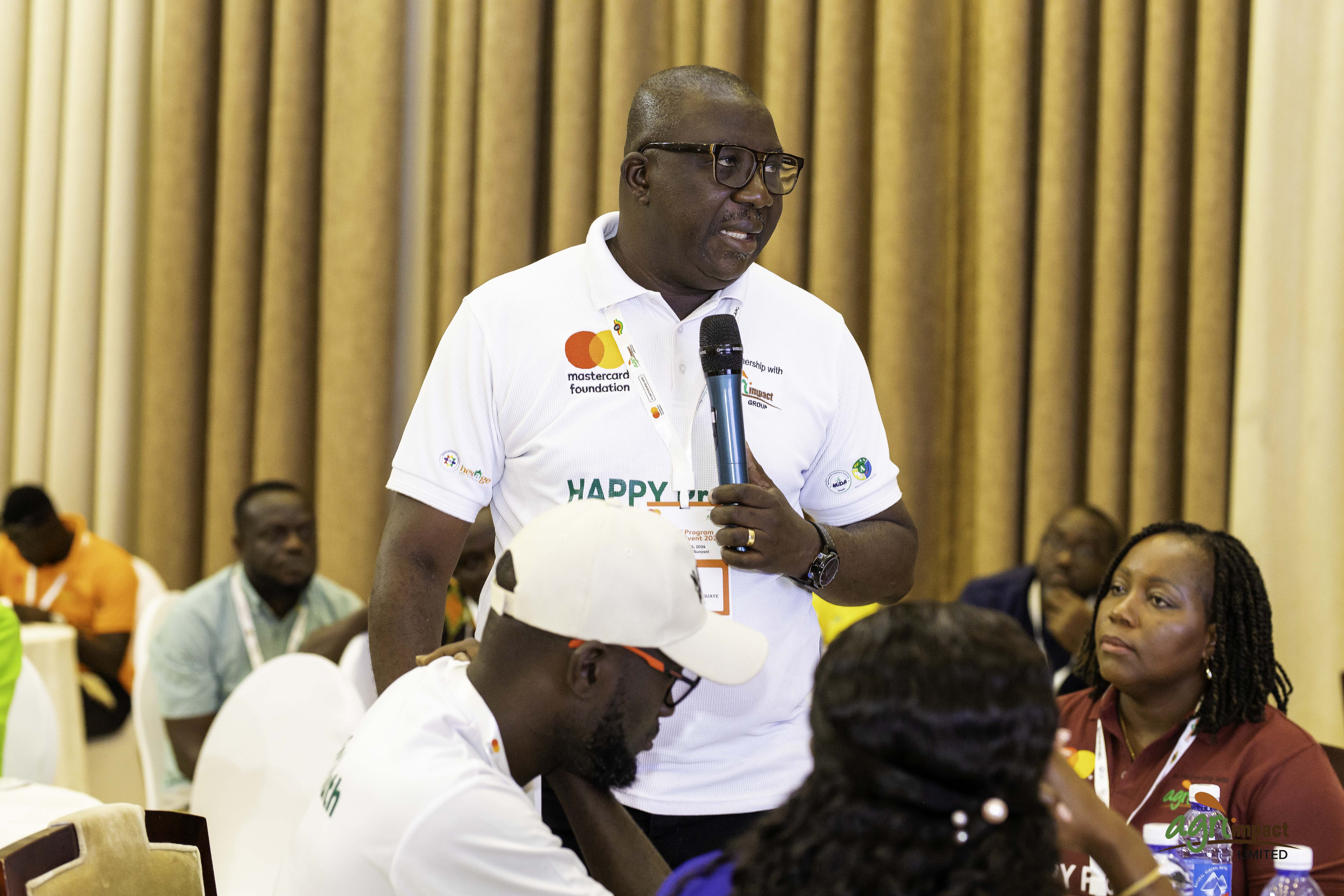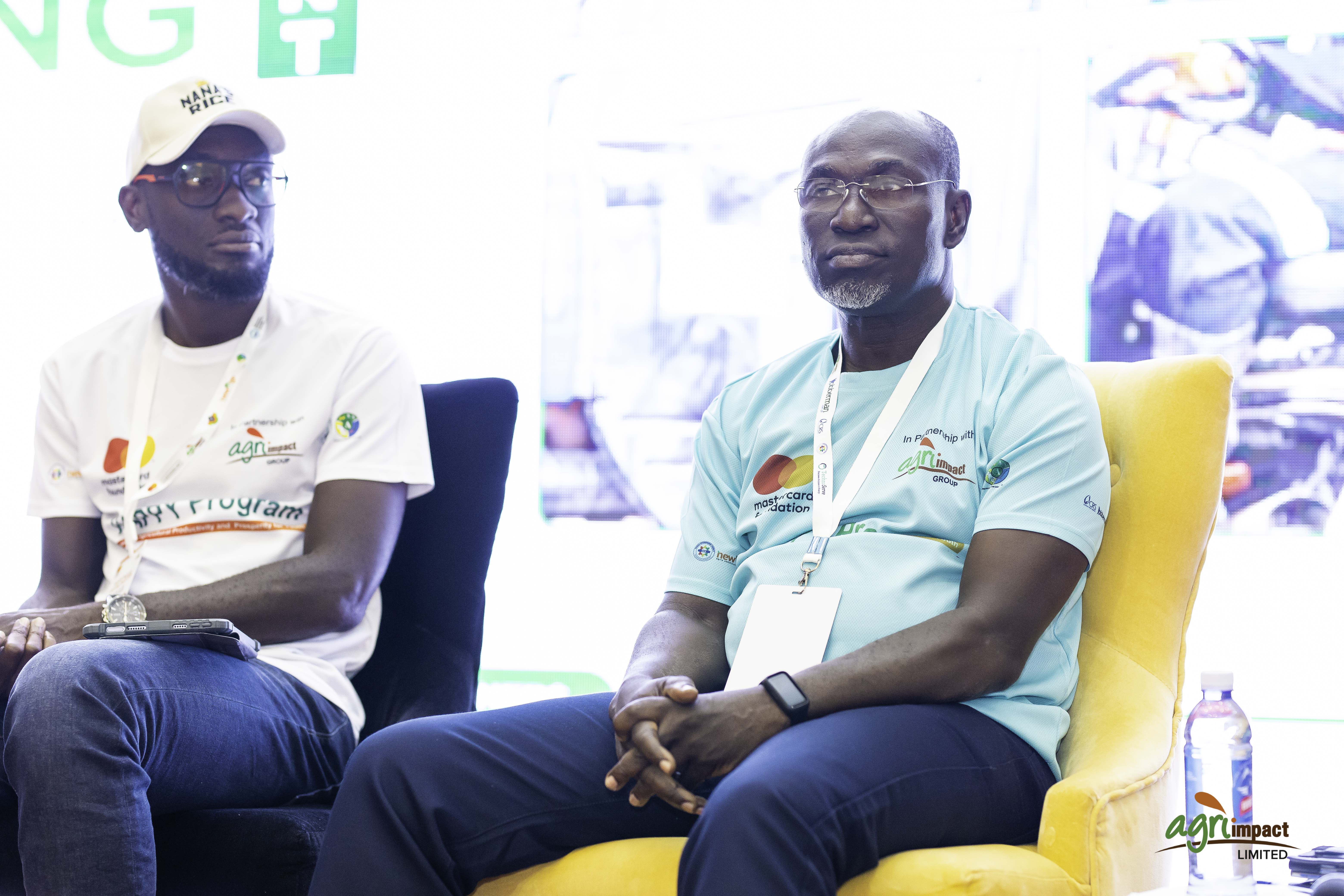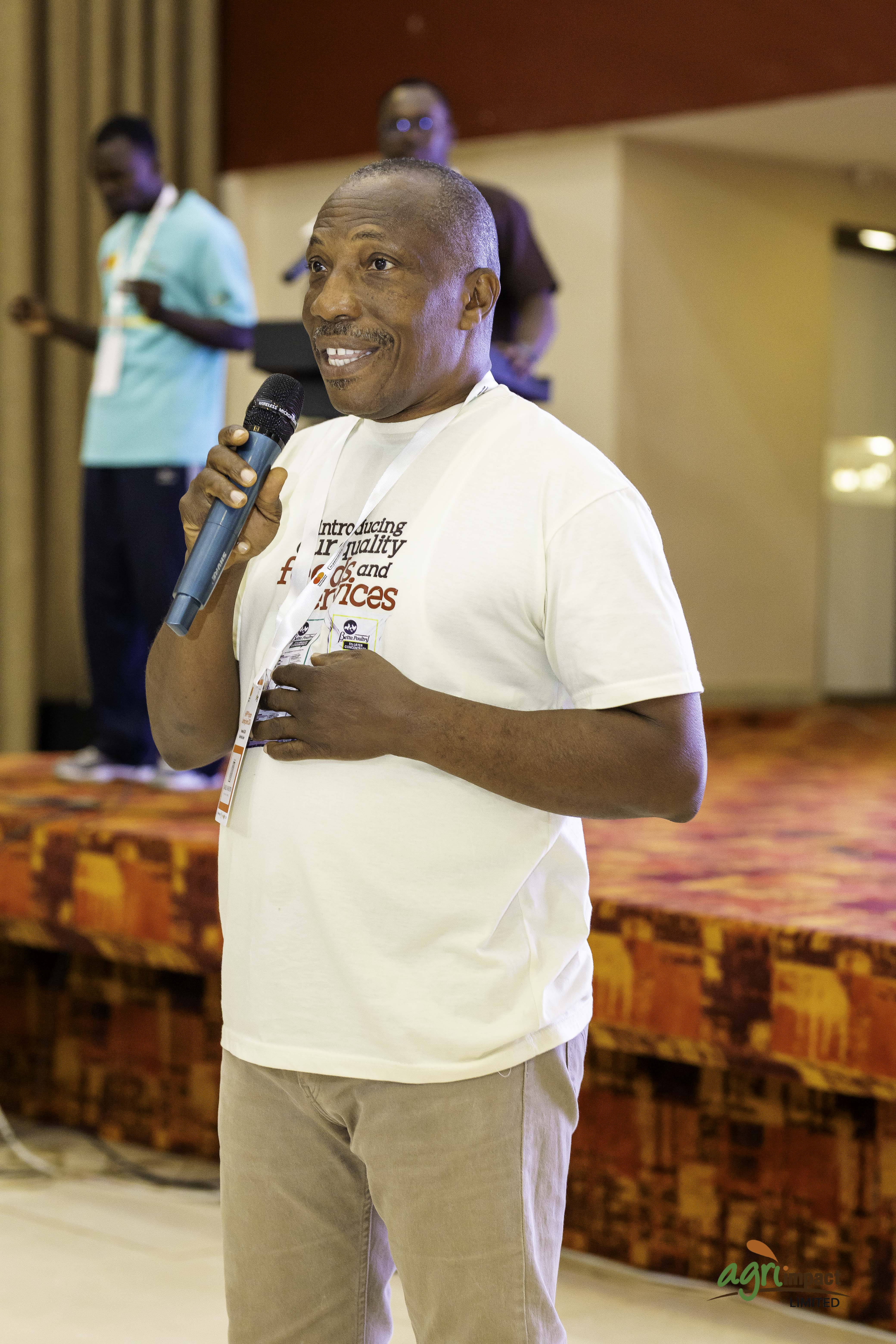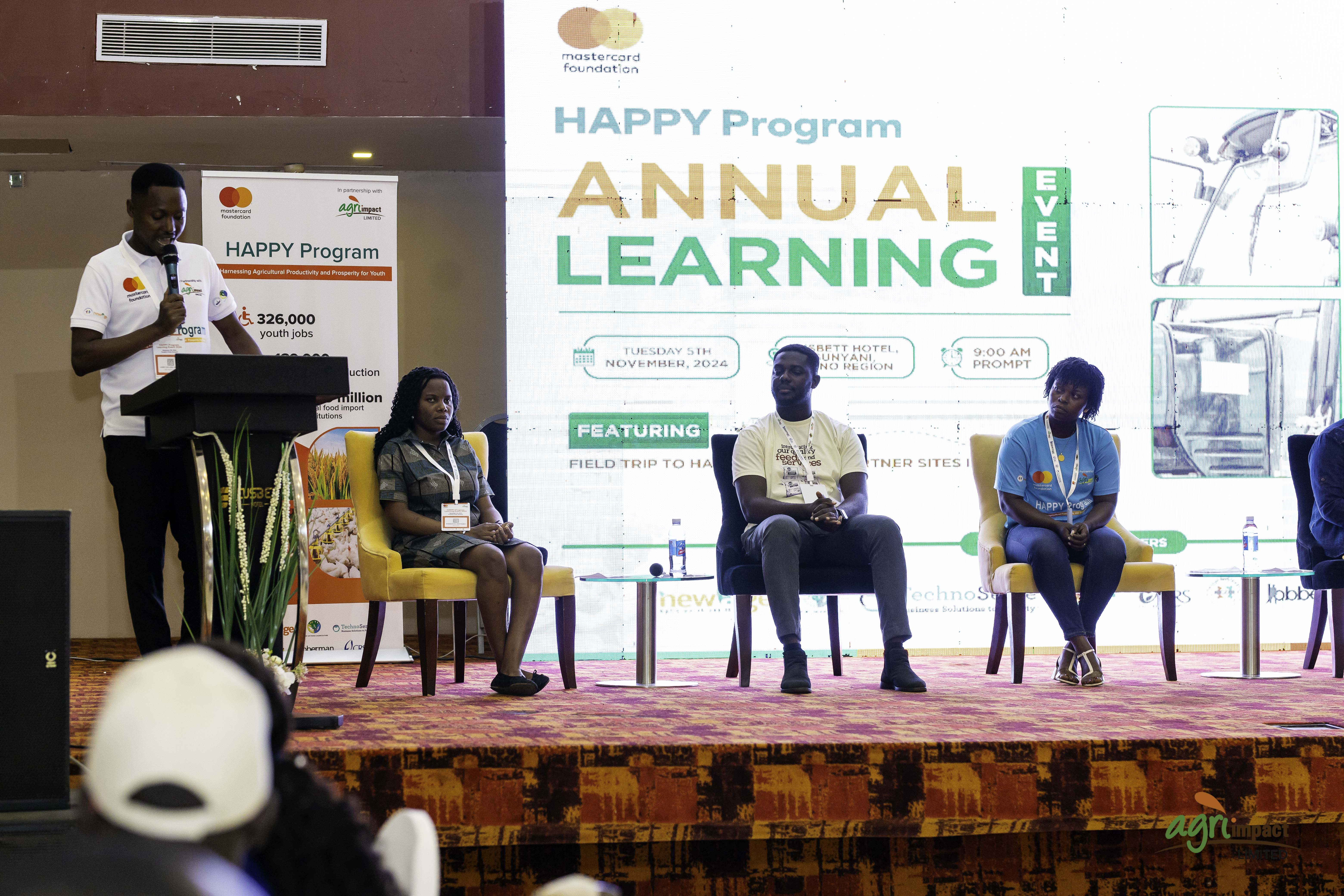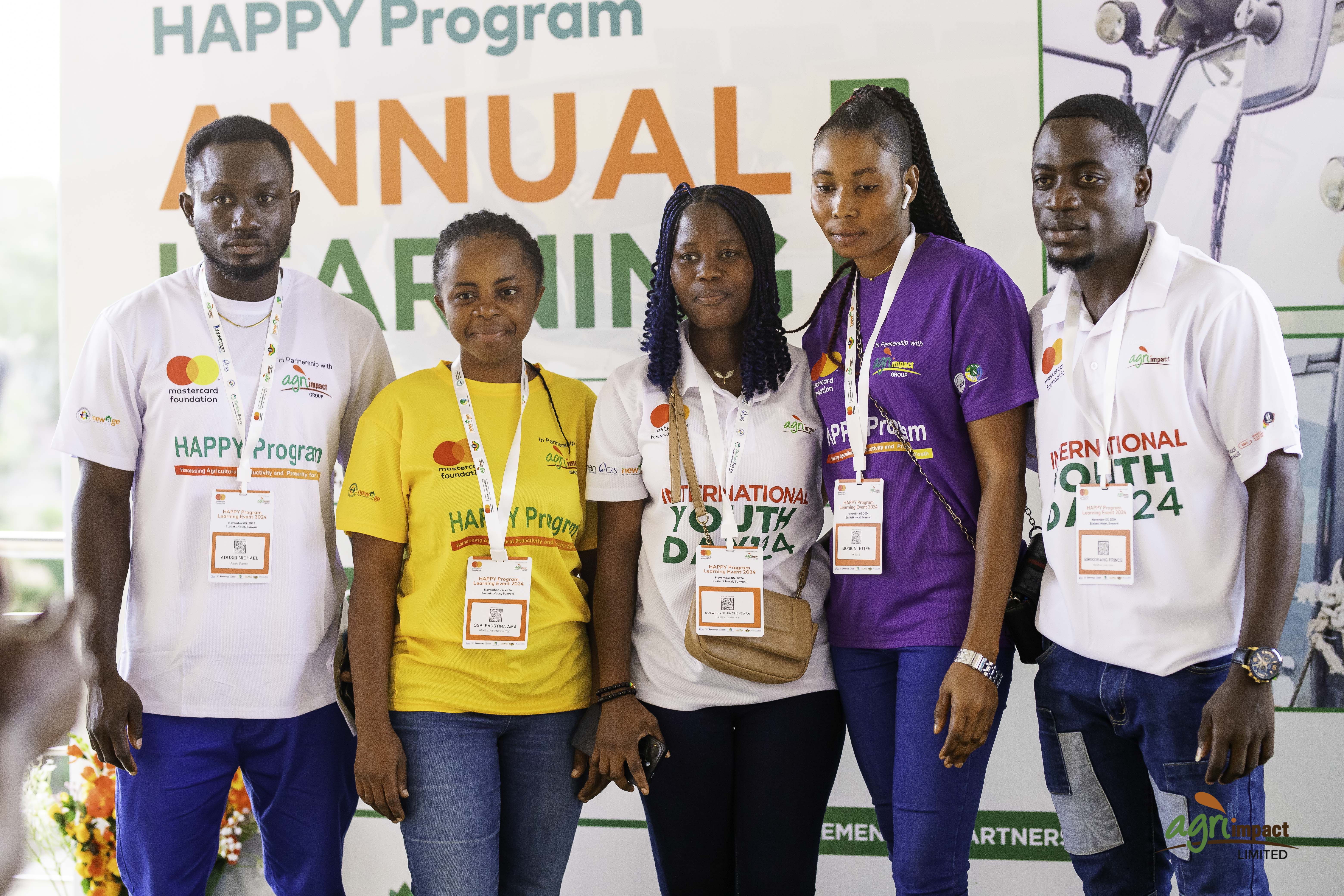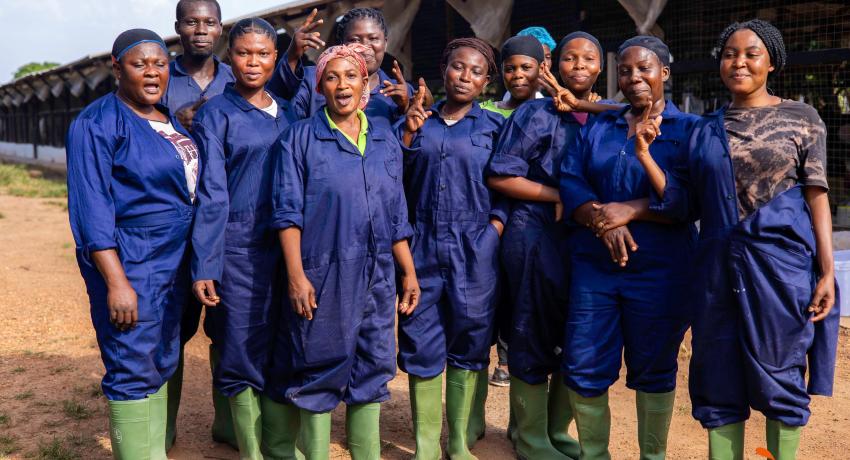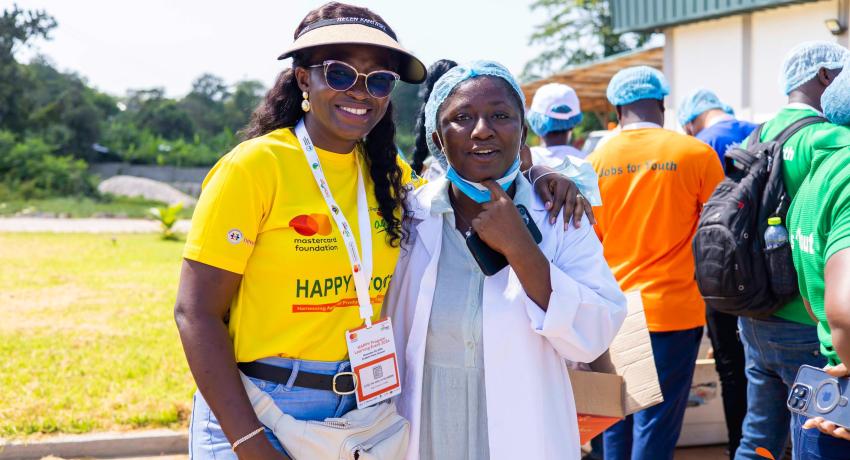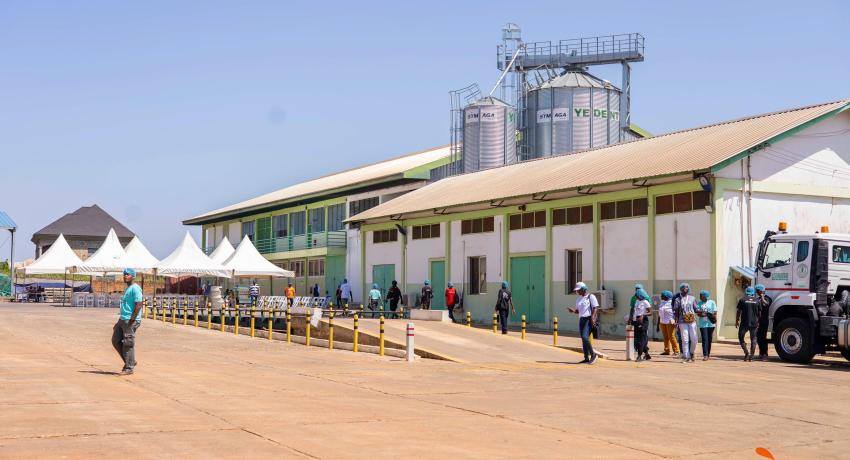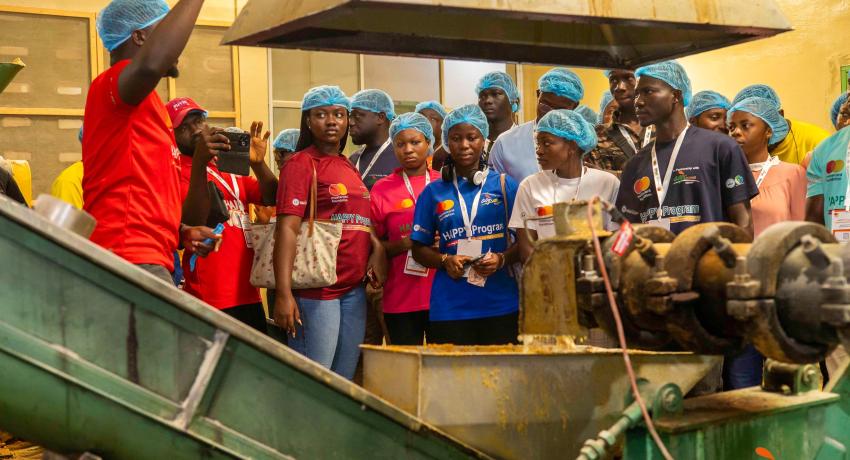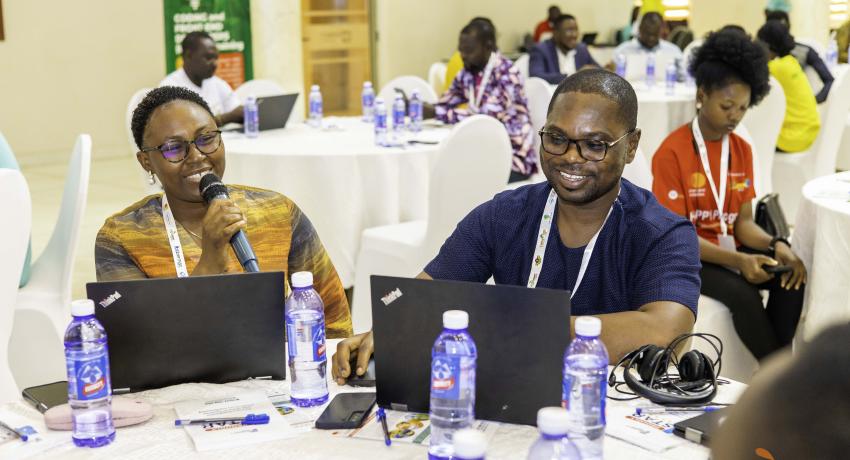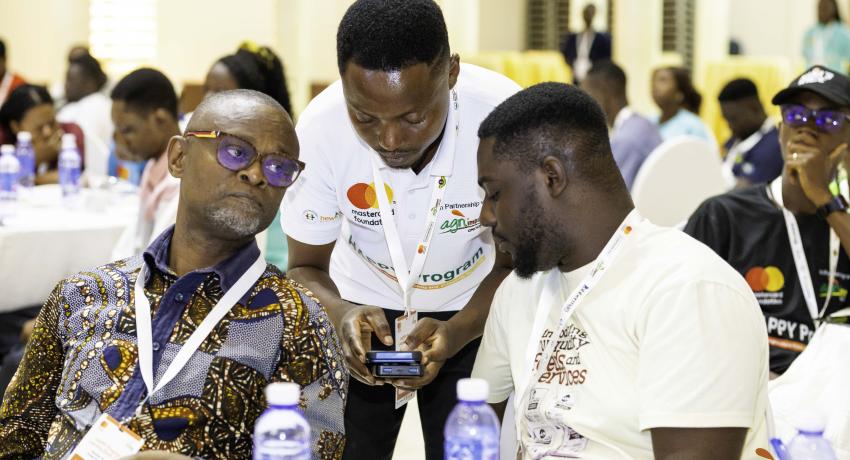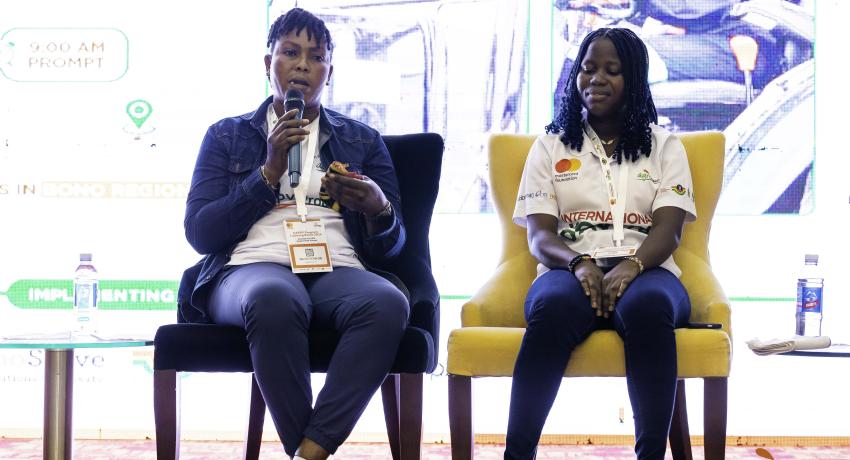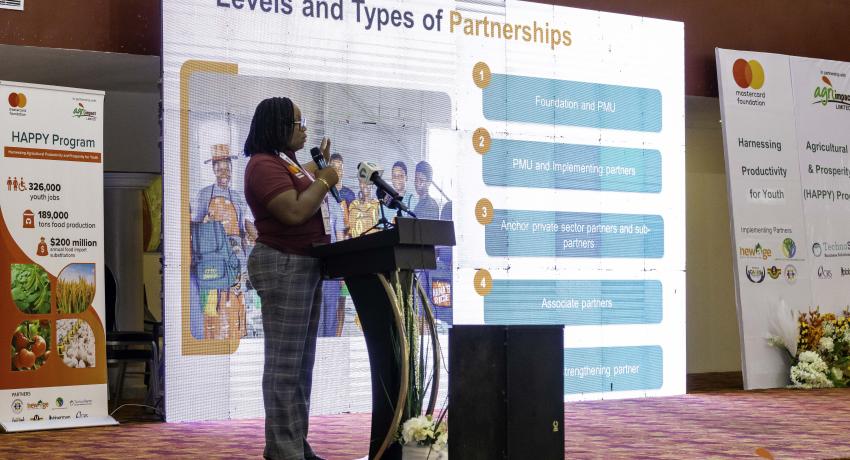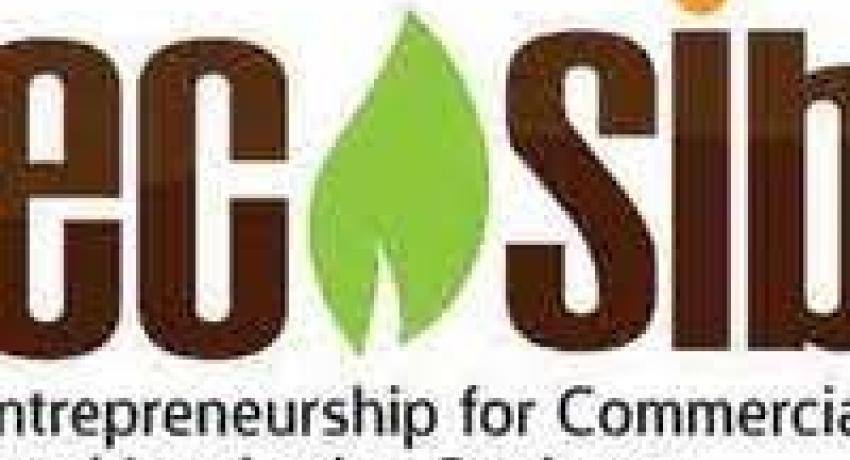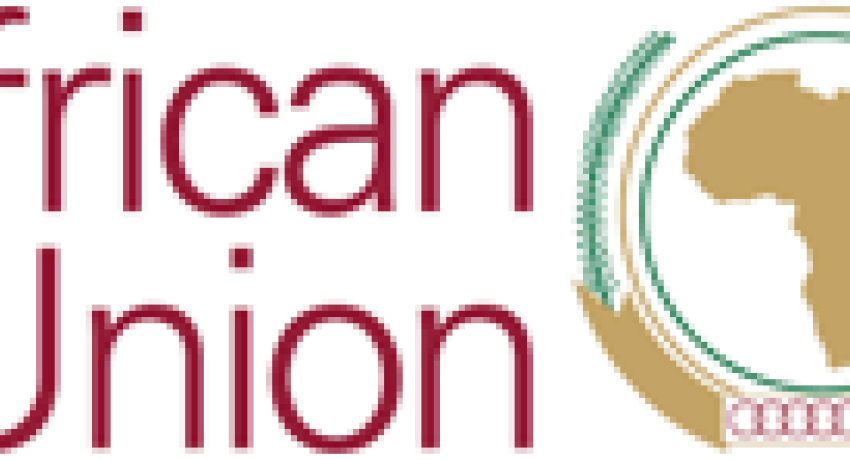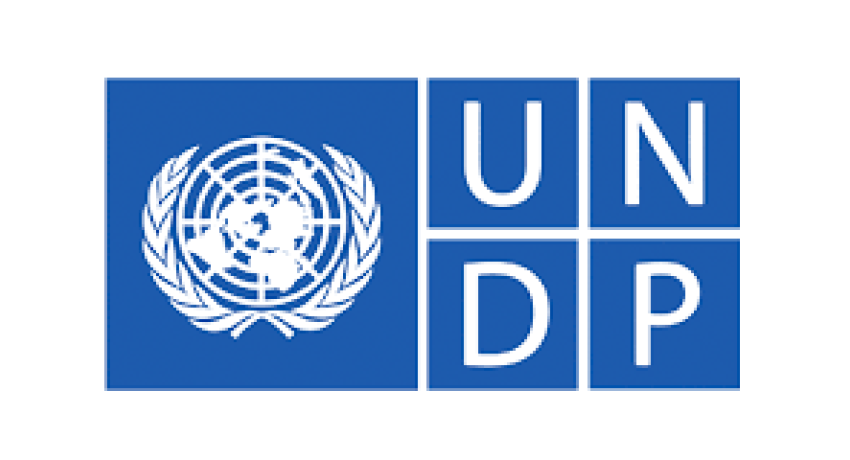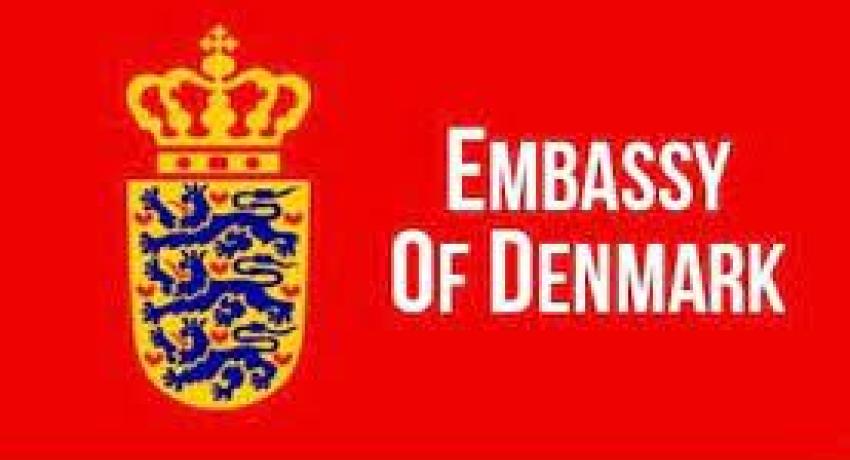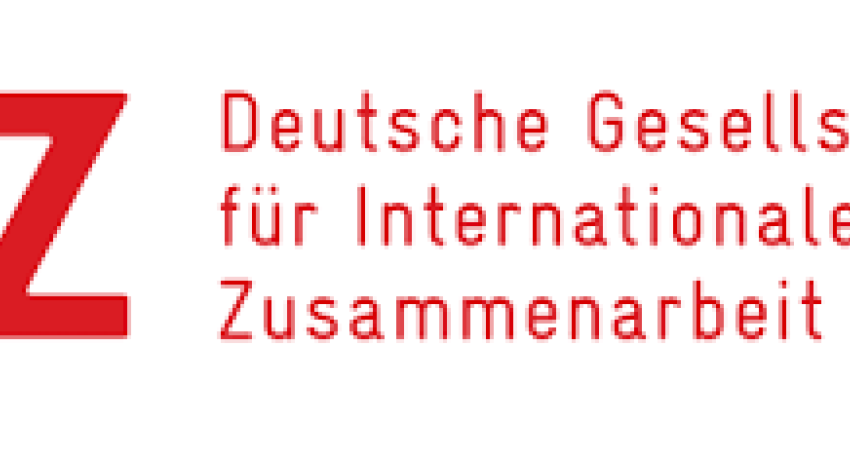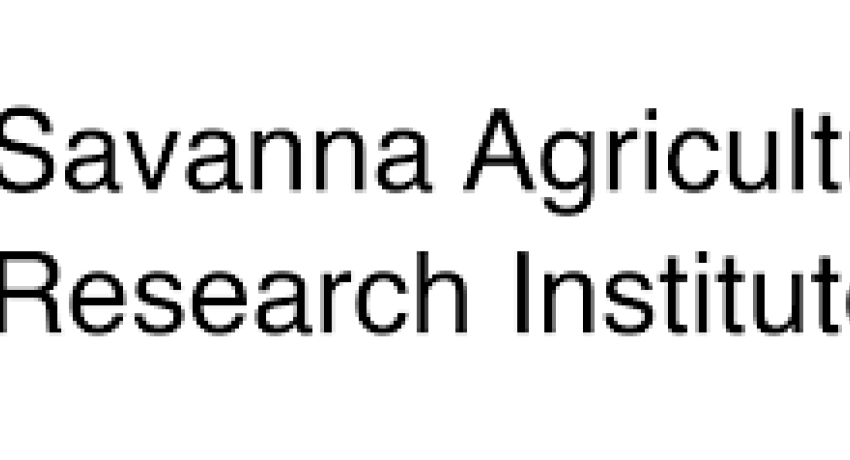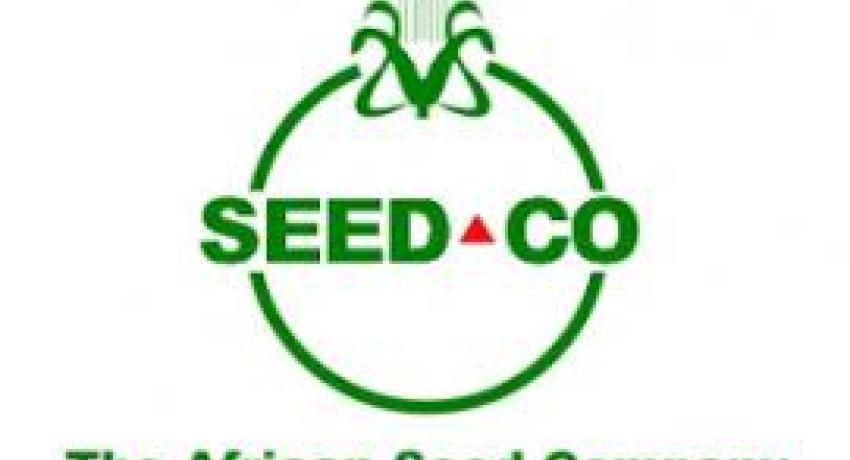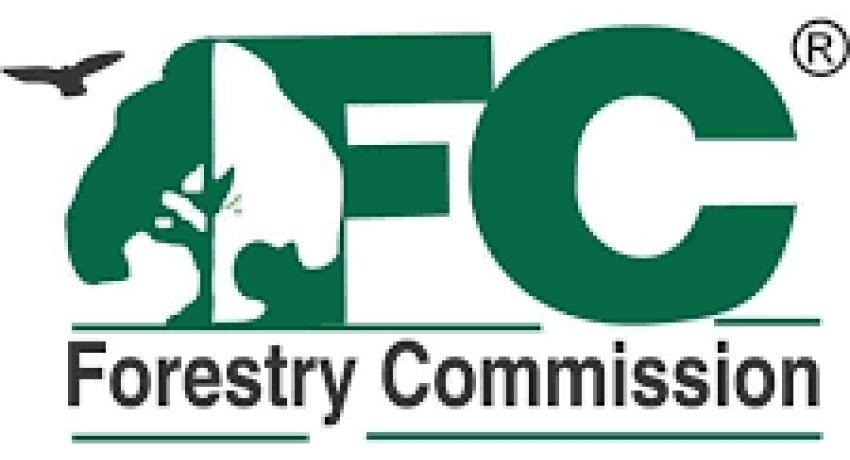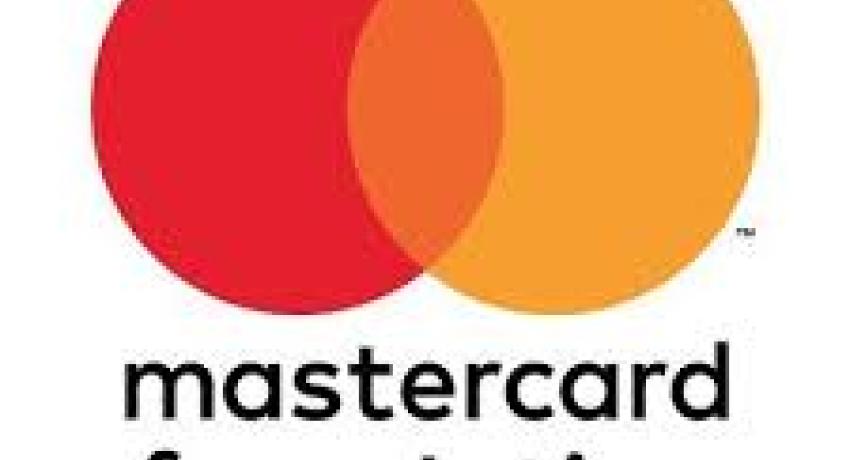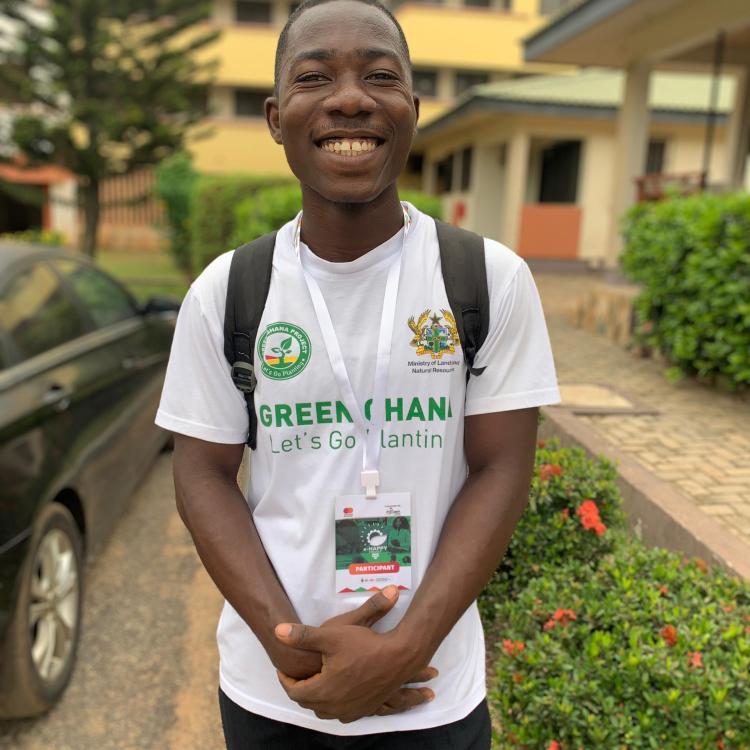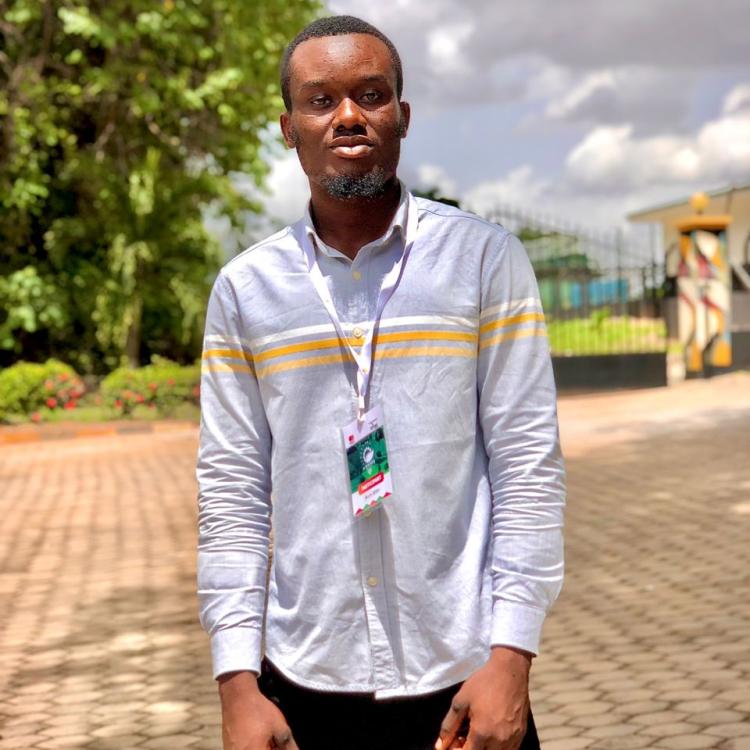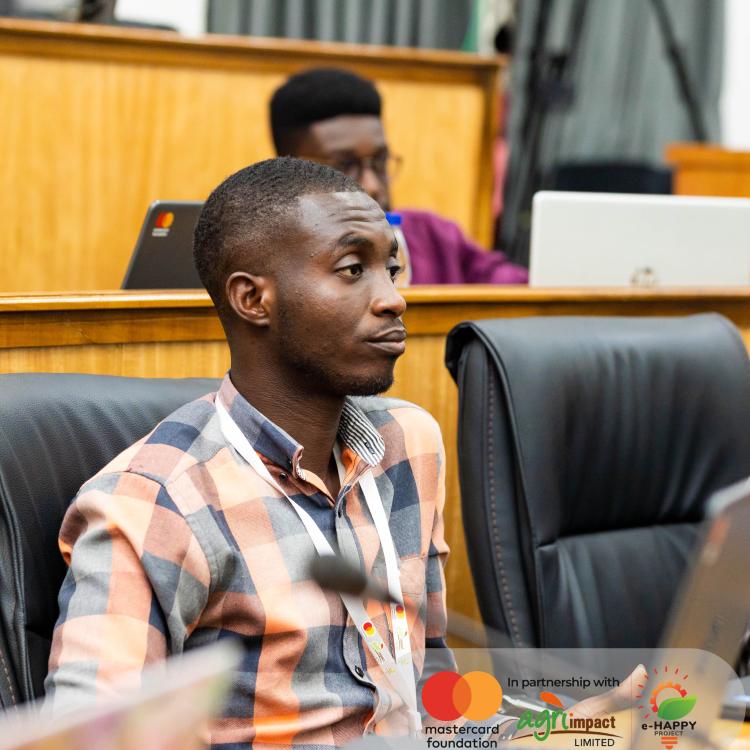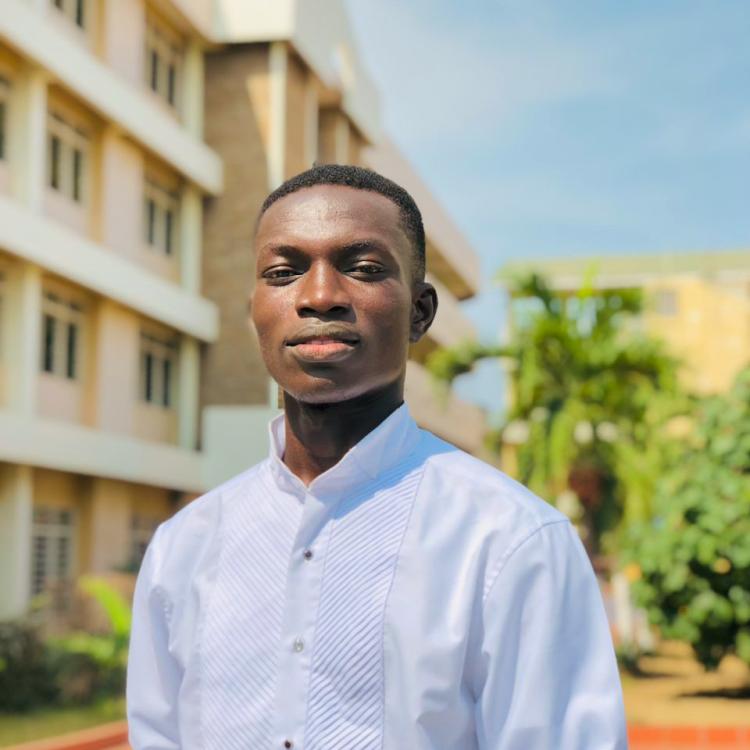The Annual HAPPY Learning Event took place last week in Sunyani, Bono Region, to review the first-year achievements and challenges of the Harnessing Agricultural Productivity and Prosperity for Youth (HAPPY) Program.
A partnership between the Mastercard Foundation, Agri-Impact Limited, and eight other partners, the HAPPY Program aims to create dignified jobs for 326,000 young Ghanaians—70% of whom are women and persons with disabilities—across the poultry, tomatoes, rice, and soybean value chains.
Started in December 2023, the four-year program, concluding in 2027, has already enrolled over 90,000 young Ghanaians nationwide.
Implementing partners
The event, held at Eusbett Hotel in Sunyani, gathered Mastercard Foundation staff, the HAPPY Program consortium led by Agri-Impact Limited, and partners including NewAge Agric Solutions, National Service Scheme (NSS), Ghana Cares (MiDA), Ghana Enterprises Agency (GEA), Ministry of Food and Agriculture (MOFA), TechnoServe, Catholic Relief Services (CRS), Jobberman, youth participants, and agribusiness stakeholders.
Mrs. Juliana Asante-Dartey, Deputy CEO of Agri-Impact Limited, presented the first-year results, noting that the program surpassed its initial job creation target by generating 94,255 jobs with a target of onboarding additional 130,000 youth in the second year.
She added that 55% of the enrolled youth were young women. Achievements included $13.2 million in sales of poultry and rice products, 18,000 metric tonnes of rice production, and the raising of 1.8 million birds.
Public and private investments
She also praised public and private partner investments, totaling $1.4 million in facilities like hatcheries, silos, warehouses, meat and rice processing units, and additional investments in land development and irrigation worth over $25 million.
The program's partnership with the Kwame Nkrumah University of Science and Technology (KNUST) to launch the E-HAPPY program, along with skill training, financial inclusion, and technology initiatives, were also highlighted.
Daniel Fahene Acquaye, Chief Executive of Agri-Impact Limited, explained that the learning event was designed to share insights from the first year of the HAPPY Program.
“The goal of this program is to produce 189,000 tons of food annually, reducing our food imports by $200 million—about 10% of our total food imports. After one year, we’ve gained valuable lessons, and it's essential to share these insights to guide other organizations and agricultural programs,” he said.
The event included a three-panel discussion which addressed key themes in enhancing youth engagement in agriculture covering:
1. Driving Sustainability for Youth in Agriculture through Private Sector Partnerships
2. Pathways to Sustained Employment for HAPPY Participants
3. Leveraging Government Resources for Young People
Remarks by Mastercard Foundation
Gottfried Odamtten-Sowah, head of Entrepreneurship Development at Mastercard Foundation Ghana, delivered a keynote on behalf of Country Director Rica Rwigamba, highlighting how the program is mobilizing youth, equipping them with essential skills for productivity and sustainable livelihoods.
He emphasized that "agriculture is not a fallback option but a vibrant and viable career path that can drive growth and resilience in our communities.”
Samuel Ntim, CEO of NAPLE Betta and the program’s middle belt anchor partner for the HAPPY Broiler project, echoed this sentiment, saying the agricultural sector holds a promising future for youth.
Field trip
On November 6, 2024, participants toured poultry value chain sites implementing the program, including Yedent Agro Processing Company/NAPLE Betta feed plant, GINAACO Farms, and Jobyco poultry processing factory, gaining insights into innovative practices within the HAPPY Program.
Some participants the team interacted with at the various sites were grateful for the opportunity to be part of the HAPPY Program.
Serwaa Juliet, a young participant at GINAACO, one of the program's nucleus farms, shared her experience saying: “Before joining the program, there was nothing good to write home about my life. I’ve been on the program for the past few months and have seen significant progress. This program has positively impacted my skills and finances, and I’m now able to support my parents and my three siblings in school.”
As the HAPPY Program moves into year two, it aims to build on its successes, tackle challenges, and prioritize value addition across its sectors.
About HAPPY Program
Harnessing Agricultural Productivity and Prosperity for Youth (HAPPY) Program, an initiative of the Mastercard Foundation in partnership with Agri-Impact Limited (PMU) aims to create 326,000 jobs for Ghanaian youth in the agricultural sector.
The HAPPY Program is being implemented by eight partners, including the National Service Scheme (NSS), Ghana Cares (MiDA), NewAge Agric Solutions, the Ministry of Food and Agriculture (MoFA), Ghana Enterprise Agency (GEA), CRS, Jobberman, and TechnoServe.
By focusing on four key agricultural value chains—rice, soybean, tomato, and poultry—the initiative not only aims to boost local production but also provide dignified employment for young people aged 15-35, with a focus on women (70%) and persons with disabilities.

